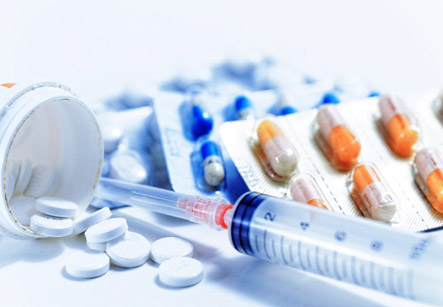Ovulation Induction
Introduction
Ovulation induction means the use of medications to stimulate the development of one or more mature follicles in the ovaries of women who are suffering from an ovulation (inability to ovulate) and infertility. Mature follicles do not develop in these women without help from ovulation enhancing drugs.
Indication for being treated with induction of ovulation
1. Women with PCOS or polycystic ovarian syndrome, who do not ovulate on their own regularly, and want to get pregnant. These women also suffer from irregular menstrual cycles, increased body hair, and infertility.
2. Hypothalamic Amenorrhea- this occurs due to lack of exposure to enough gonadotrophins. Gonadotrophins are hormones called Luteinizing Hormone (LH) and follicle stimulating hormone (FSH), which are produced by the pituitary glands. This can occur due to pituitary damage but it commonly happens as a result of excessive exercise or stress. The condition can also occur after use of the oral contraceptive pills or in case of delayed puberty.
Iran ranks first in the region in terms of infertility treatment studies

Procedure
There are five basic types of medication which are used to induce ovulation. Treatment with these drugs can succeed to pregnancy if the woman has good quality eggs in her ovaries, and if other causes of infertility are not present.
These medications are:
• Clomiphene citrate:
It is an oral tablet that is taken either on days 3-7 or 5-9 of the menstrual cycle.
• Letrozole treatment for inducing ovulation
• Injectable gonadotrophins:
Injectable fertility medications, called as gonadotrophins, contain follicle stimulating hormone (FSH). It causes development of one or multiple follicles in the ovary in women that do not ovulate.
The induction of ovulation is very expensive, especially with gonadotrophins injections.
These medications are given by intramuscular injections or subcutaneous injections every day. They are started early in the menstrual cycle and are continued for approximately 8-14 days. The effect is confirmed by visualization of one or more mature follicles on ultrasound examination of the ovaries. At this point an injection of HCG is given which induces ovulation approximately 36 hours later after the dose.
While using injectable gonadotrophins, ultrasound and blood monitoring of the stimulation cycle is important as there are risks associated with overstimulation of the ovaries in case of excessive response. This monitoring is done 3 times a week during the course of the injectable medications. This adds substantially to the cost of the cycle.
This therapy helps over 90% ovulatory women to have ovulation. Pregnancy rates per month are about 15% for relatively young women with no other factors for infertility if combined with intrauterine insemination. Low pregnancy rates are achieved with injectable gonadotrophins combined with intercourse.
After trying this type of therapy for 3-6 months and if pregnancy does not occur, then in vitro fertilization should be considered.
• Bromocriptine:
Anovulation is sometimes caused by elevated levels of a pituitary hormone known as prolactin. This can be treated with a medication called bromocriptine. This is a rare anovulation disorder. Women with this condition often have no menstrual periods, called as amenorrhea.
Cost for induction of ovulation:
The induction of ovulation is very expensive, especially with gonadotrophins injections. The cost depends on the type and dose of medication used and the number of ultrasound and blood tests performed to adequately monitor the cycle. Sometimes the cost increases manifold when an artificial insemination is also recommended to increase the chances for a pregnancy.
Medication Side Effects:
1. Clomiphene Citrate: This drug causes side effects such as hot flushes, abdominal discomfort, bloating around the time of ovulation, nausea or vomiting, fatigue, dizziness or light headedness and headache. Clomiphene is postulated to increase the risk of congenital malformations, but this is not yet proven.
2. Follicle Stimulating Hormone (FSH) injections: Possible side effects are nausea, abdominal cramps, bloating, breast tenderness and mood swings.
3. Ovarian Hyperstimulation Syndrome (OHSS): This syndrome occurs in some women who show an over response to the stimulating medication. It should be prevented as it is a potentially serious complication. The severe symptoms of OHSS include severe abdominal pain, nausea or vomiting, decreased urinary frequency, dark-colored urine and shortness of breath. These symptoms should be immediately informed to the doctor.